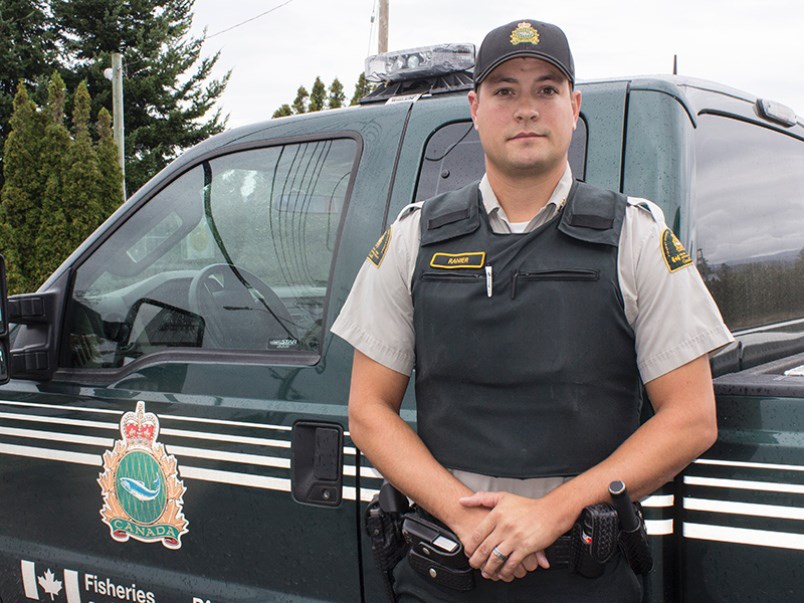The Department of Fisheries and Oceans (DFO) is eager to get tips from the public about suspected illegal fishing or shellfish harvesting, but it’s also warning people against confrontations.
A recent surge in illegal activity, especially shellfish harvesting, has prompted some concerned local residents to get more proactive about reporting suspicious activity, and a recently formed Facebook group, Sunshine Coast Fish and Wildlife Protection, grew to nearly 750 members in just a few days.
The Facebook group’s description says it was established to “name-and-shame, rat out to the authorities, post incriminating photos and evidence, and do everything else we can to reduce illegal shellfish harvesting, illegal hunting, and illegal harassment of fish and wildlife on the Sunshine Coast,” as well as push governments to put more resources into enforcement.
DFO officer Ben Rahier from the Powell River office, which has responsibility for the lower Sunshine Coast, said they’ve been getting more reports from the public and that’s leading directly to more resources and more enforcement, like the blitz late last month that netted more than $14,000 in fines.
“Valid occurrences that are logged in our system, ones that are of actual violations, help us justify getting more resources,” said Rahier. “For example, Powell River is getting a third fishery officer, which is a positive step, and a lot of that has to do with how many occurrences we’re getting and the violations we’re encountering.”
Rahier also said the more information people can supply when they call DFO the better, including location, time, vehicle descriptions and plate numbers, and even pictures of the suspected violators.
“However, we do not recommend that anybody engages with the fishers. There’s an inherent risk associated with engaging with people, especially if they’re doing things illegally,” he said. “We don’t want anyone to jeopardize their personal safety over illegal fish.”
Rahier also said it’s important for the general public to remember that they do not have enforcement powers and cannot inspect people’s licences, catch or vehicles.
“When they do things like that they take it into their own hands to push the envelope and that opens them up not only to [risking] their own safety, but for liability as well. You don’t want people trying to do the right thing being charged with harassment or assault.”
Some of the social media discussion around tackling illegal fishing and shellfish harvesting has even included the idea of forming Neighbourhood Watch style patrols with people wearing shirts with a slogan such as “Fisheries Watchdog.”
DFO discourages anyone from trying to use their logo or name without authorization, including printing homemade closure signs.
Rahier said if someone is aware of any area that needs better signage, or where existing signs have become damaged or been vandalized, they can file a report and DFO will put up the signs.
The DFO Observe, Record, Report line, 1-800-465-4336, is staffed 24/7 by operators who can get information to the fisheries officers closest to the situation. Rahier said, if necessary, the fisheries officers are able to contact RCMP or the Conservation Officer Service to respond to the call to minimize delays.
Rahier said he and the other fisheries officers working in the area appreciate the level of public concern and the desire to be a part of the solution, but they don’t want that desire driving people to cross the line.
“My thoughts, first and foremost, is everybody’s safety and I don’t want anybody trying to do the right thing and putting themselves in a bad position,” Rahier said. “That’s the last thing I want to see.”
DFO’s online listing of shellfish closures, rockfish protection areas and other fishing regulations is available at: www.pac.dfo-mpo.gc.ca/fm-gp/contamination/index-eng.html
The BC Centre for Disease Control also has an online map of areas where shellfish harvesting is banned because of sanitary or biotoxin closures: maps.bccdc.org/shellfish



